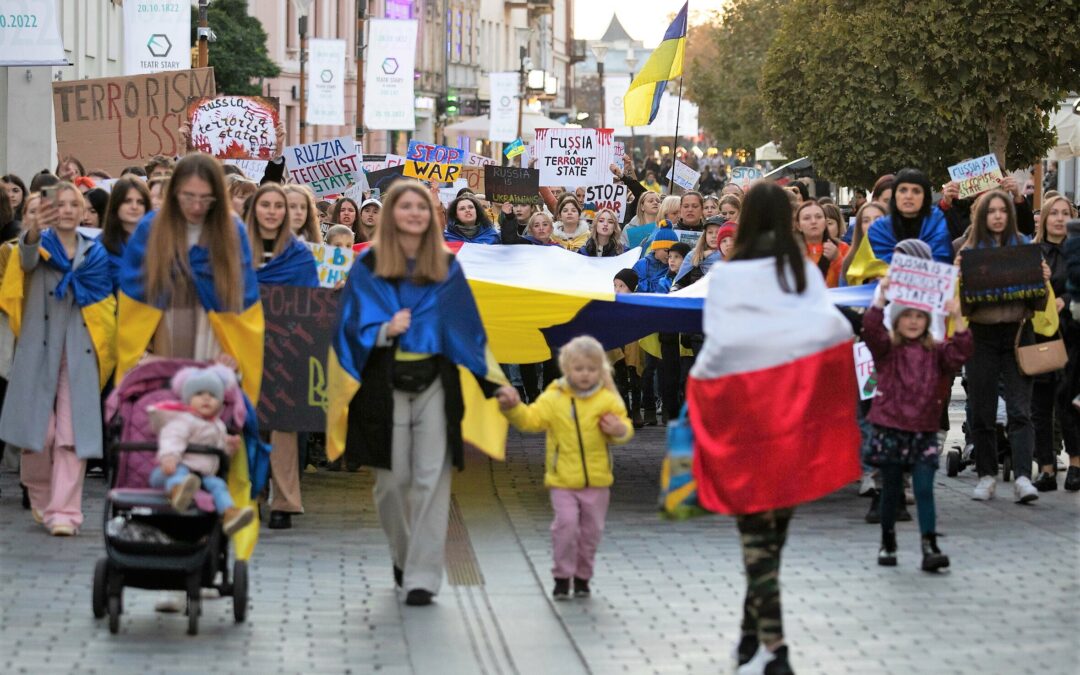Poland will spend an estimated €8.36 billion on maintaining refugees from Ukraine in 2022, the highest figure among the member countries of the Organisation for Economic Co-operation and Development (OECD), according to the organisation’s new publication on migration.
Poland and Germany, which ranks second in estimated costs related to Ukrainian refugees, are expected to bear more than half the total €26.8 billion faced by the OECD’s 38 members.
The cost of maintaining refugees from Ukraine in 2022 in Poland is estimated at €8.36 bln, the highest among OECD countries, according to the latest OECD publication, Migration Outlook 2022. To the OECD, the cost of maintaining refugees in 2022 is estimated at €26.8 bln.
— Ben Esmael (@BenEsmael1) October 11, 2022
The OECD’s International Migration Outlook 2022 notes that the “large-scale unprovoked aggression of Russia against Ukraine…created a massive refugee crisis unseen in Europe since World War II”.
The number of refugees reached 3 million in less than three weeks and almost 5 million have now been recorded across the EU and other OECD countries.
Around two thirds of those who fled Ukraine crossed into Poland. Though some subsequently moved on to other countries and others later returned home, the OECD notes that 1.38 million recorded for temporary protection in Poland.
Around one million Ukrainian refugees remain in Poland, according to analysis of public data by @MaciekDuszczyk and @BartoszMarczuk.
Around 91% of them are women (45%) and children (46%) https://t.co/NwmEuwygJv
— Notes from Poland 🇵🇱 (@notesfrompoland) October 14, 2022
The report names Poland as one of the countries where individuals opened their homes “in an unprecedented show of solidarity”, “relying extensively on a system of volunteers to meet housing needs”, with the government also providing financial support to private hosts.
The OECD also notes that Poland was one of the countries that opened new reception centres to cope with the demand, as well coordination units to arrange accommodation for larger groups of unaccompanied minors and orphans.
As a result, the country will bear the highest financial impact of the refugee crisis, at an estimated €8.36 billion by the end of 2022. Most of this figure is made up of living costs, including accommodation and financial subsidies (€6.21 billion), while it also takes into account education and healthcare.
Germany’s total bill will come to around €6.8 billion, followed by the Czech Republic with around €1.96 billion. Spain and Romania are also likely to have costs over €1 billion.
The estimates, based on OECD’s own methodology, assume that the distribution and demographic composition of the refugee population remains fixed, although the report acknowledges that numbers in Hungary, Slovakia and Romania may be overestimated as refugees have moved on or returned to Ukraine.
The report also mentions that Poland is one of the EU countries “taking first steps towards phasing out temporary protection” by offering a pathway allowing Ukrainian refugees to obtain three-year residence permits.
Main image credit: Jakub Orzechowski / Agencja Wyborcza.pl

Ben Koschalka is a translator, lecturer, and senior editor at Notes from Poland. Originally from Britain, he has lived in Kraków since 2005.




















